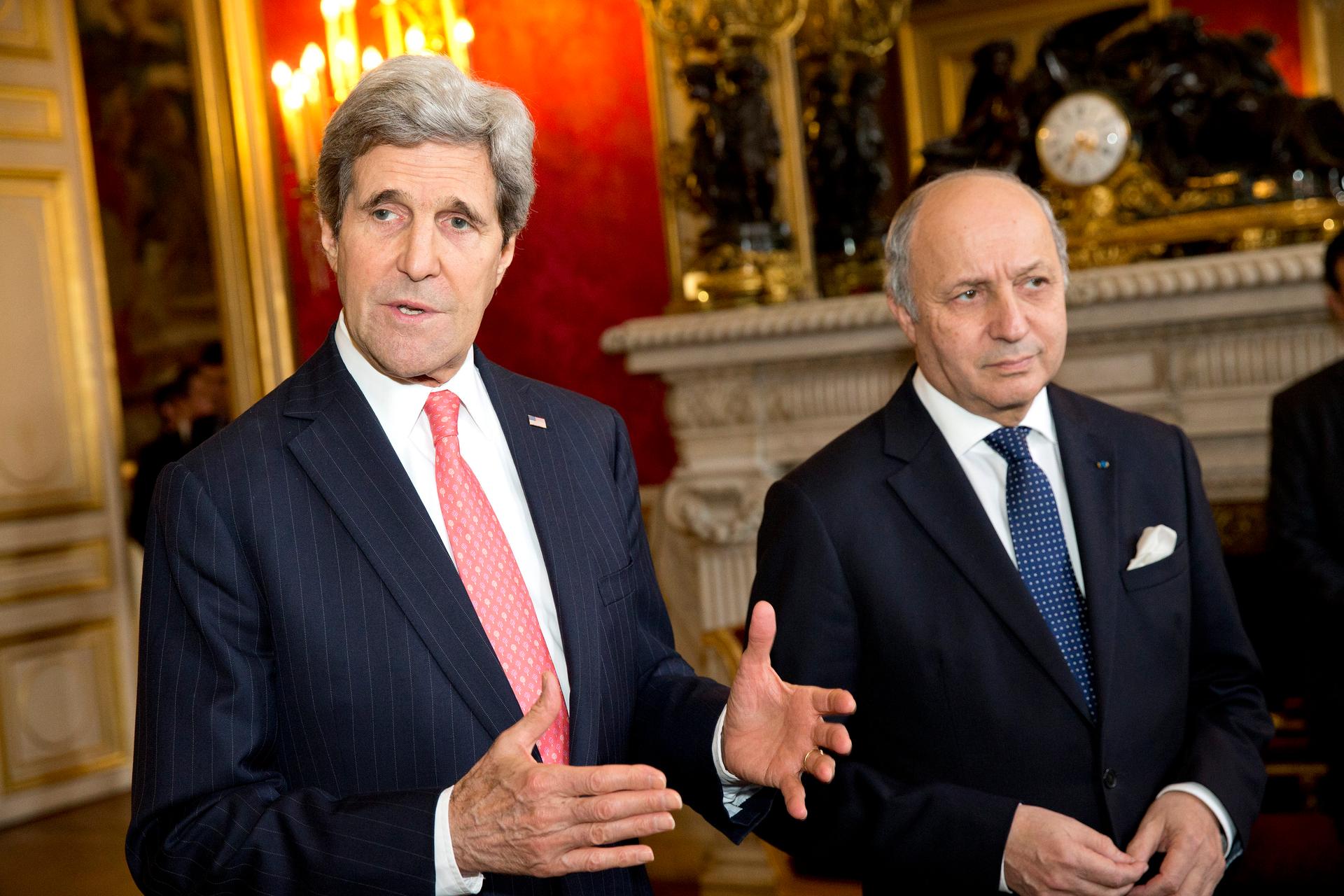Can the US and Europe do anything to stop the violence in Ukraine?
US Secretary of State John Kerry (left) gestures during a statement on the violence in Ukraine, before a meeting with French Foreign Minister Laurent Fabius in Paris February 19, 2014.
On Wednesday, John Kerry did not explicitly blame the Ukrainian government for starting the new violence in Kiev. But he did come close.
“President [Viktor] Yanukovych has the opportunity to make a choice,” Kerry said. “The choice is between protecting the people that he serves, all of the people, and the choice for a compromise and dialogue, versus violence and mayhem.”
Kerry warned there could be consequences for Ukrainian leaders, if they make the wrong choice. “We are talking about the possibility of sanctions or other steps with our friends in Europe and elsewhere, in order to try to create the environment for compromise.”
The White House urged the Ukrainian government to pull riot police back from Independence Square in Kiev, agree to a truce with the opposition and start negotiating.
But Ukraine's President Yanukovych — and his ally Russia — see the situation quite differently. Russia's foreign minister, Sergey Lavrov, echoed Ukraine's government in calling the violence an "attempted coup." He added that the coup was supported by western nations.
Lavrov's spokesman went even further. “Russia is outraged with Ukrainian opposition leaders and European politicians for failing to condemn the activities of radicals,” Aleksandr Lukashevich said. In case anyone was missing the point, he drew a parallel between the opposition and the Nazis of 1930s Germany.
Foreign ministers with the European Union plan to hold an emergency meeting about Ukraine tomorrow in Brussels. Maja Kocijancic is a spokeswoman for the EU's high commissioner for foreign policy, Catherine Ashton.
She told the BBC that the ministers "will look at all possible options, including, for example, restrictive measures against those responsible for repression and human rights violations.” Pressed about her use of the word “repression,” and whether that signaled the EU was indeed blaming the Ukrainian government for the violence, Kocijancic played down the implication.
“I can't go into the details,” she said. “We call on all responsible to immediately cease this violence.”
Any new EU sanctions for Ukraine, however, would require unanimous agreement from all 28 member states. A tall order?
James Sherr thinks so. He is an expert on Ukraine at Chatham House, a think tank in London. “The kind of sanctions late in the day that we are probably talking about is unlikely to register sufficiently," he said. "But, for all kinds of reasons, it's very difficult for EU democracies to [act] in unison and in a convincing way,” Sherr told the BBC.
The point underscores an underlying complaint from American officials about the EU. Earlier this month, a leaked phone conversation between two State Department officials appeared online. The diplomats were caught badmouthing the EU and its approach toward Ukraine.
The US diplomats also discussed specific Ukrainian opposition leaders and what role they might play in a new national government. That part of the conversation opened up the Obama administration to criticism that it is meddling in Ukrainian affairs.
The episode played perfectly into the Russian narrative: that the Americans are clumsily interfering in a country right on the Kremlin’s doorstep.
None of this bodes well for the efforts to bring about a coordinated international solution to the crisis in Ukraine.
We want to hear your feedback so we can keep improving our website, theworld.org. Please fill out this quick survey and let us know your thoughts (your answers will be anonymous). Thanks for your time!
